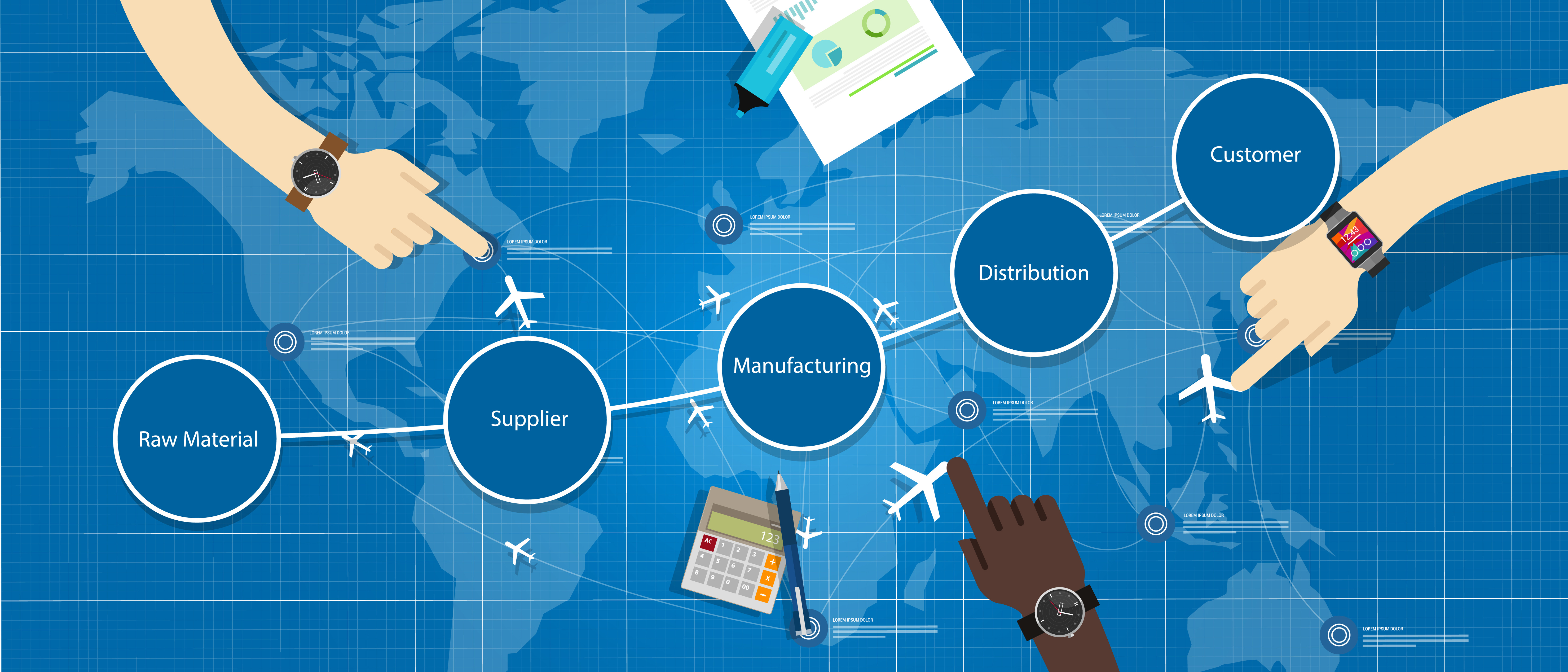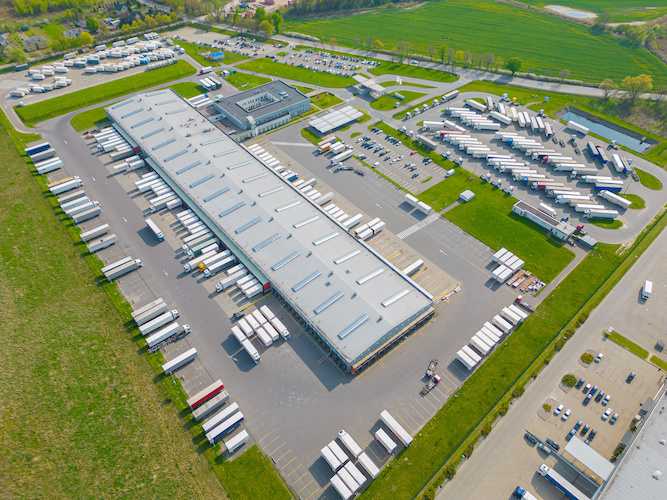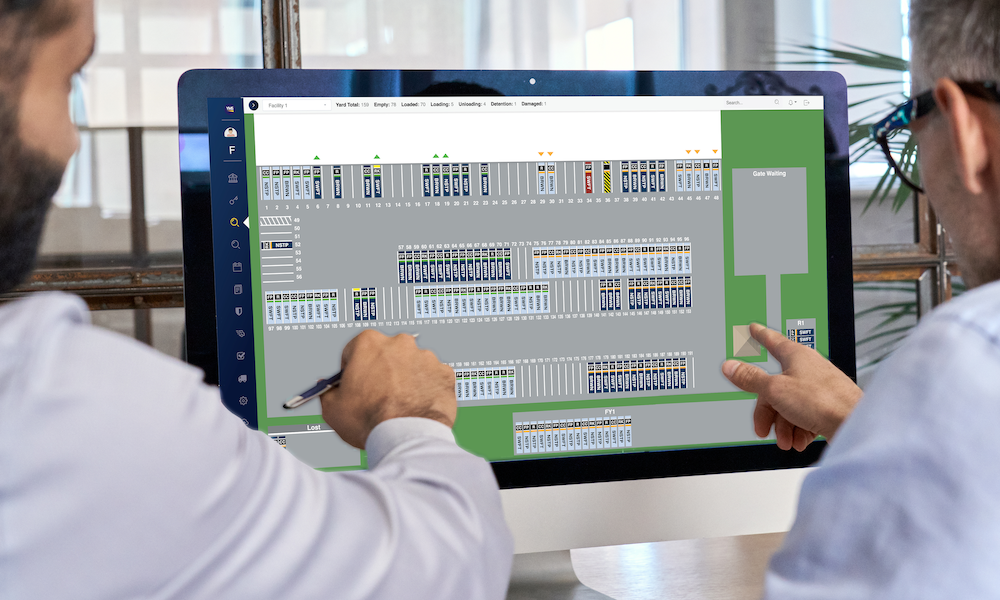The Supply Chain Automation Revolution
Breanna Roop
April 16th, 2024
6 min read
The Supply Chain Automation Revolution is not merely an industry buzzword; it represents a pivotal moment in the way businesses source, produce, and distribute goods. This paradigm shift is driven by cutting-edge technologies such as artificial intelligence, robotics, and data analytics, promising unparalleled efficiency, accuracy, and responsiveness. One noteworthy addition to this revolution is the advent of yard management automation, a new frontier in supply chain optimization.

Why Is There A Need For Automation In Supply Chains?
Embracing automation in the supply chain represents a game-changing opportunity for businesses looking to expand their horizons. By automating manufacturing processes, companies can significantly increase their production capacity, generating a higher volume of high-quality products at an impressive pace.
Automation tools increase the efficiency of teams across the supply chain, fostering seamless collaboration and productivity. Automation speeds up processes, reduces human error, reduces time consuming manual tasks, and improves accuracy. It ensures items are crafted, packaged, and transported with meticulous accuracy, curbing expenses and elevating efficiency.
Thanks to automation, the realm of supply chains has evolved into a swifter, more intelligent, and dependable entity, guaranteeing that requirements are met promptly and effectively. In this harmonious blend of technology and human expertise, supply chains evolve, ensuring the vital balance between innovation and human ingenuity.
At the forefront of the supply chain, businesses are dealing with mounting challenges, especially in the realm of last-mile deliveries, exacerbated by the consumer demand for swift service fueled by the “Amazon effect.” Automation helps businesses by speeding up their delivery process, allowing them to stay competitive in the market and succeed. In this fast-paced landscape, automation is the key that unlocks unparalleled efficiency and ensures businesses stay ahead in the race for customer satisfaction and market dominance.

The Evolution of Supply Chain Automation Technologies
The development of supply chain management has been an ongoing journey influenced by various factors such as technological progress, shifts in consumer preferences, and the expansion of global markets. As businesses came to recognize the imperative for efficient and effective management, supply chain practices underwent significant transformations.
In the early stages, supply chain automation primarily focused on improving specific, repetitive tasks. This involved the implementation of barcode systems, which enabled more accurate inventory tracking and streamlined order processing. These early automation efforts helped businesses reduce errors and enhance efficiency but were relatively limited in scope.
As technology continued to advance, the evolution of supply chain automation entered a more sophisticated phase. The adoption of Enterprise Resource Planning (ERP) systems allowed for better coordination across various functions within an organization. Companies began to integrate their manufacturing, inventory management, and transportation systems, leading to more seamless and synchronized supply chain operations.
In recent years, supply chain automation has reached new heights with the integration of cutting-edge technologies such as artificial intelligence (AI), machine learning, and warehouse automation. AI-driven predictive analytics can forecast demand more accurately, enabling companies to optimize their inventory levels and reduce waste. Warehouse robotics and automation in warehouses and distribution centers have increased the speed and precision of order fulfillment, reducing labor costs and ensuring faster delivery times.
Looking ahead, the evolution of supply chain automation is likely to continue as businesses strive to become even more agile and responsive to customer demands. This includes the exploration of blockchain technology for enhanced transparency and security in supply chain transactions, as well as a growing emphasis on sustainability and environmentally friendly practices. With each phase of evolution, supply chain automation becomes a critical factor in a company's ability to compete in a rapidly changing business landscape.

Yard Management Automation
Yard management automation is revolutionizing the way businesses manage their distribution centers, manufacturing facilities, and warehouses. It addresses the complex and often overlooked aspects of supply chain management that occur within the facility's yard.
One of the primary objectives of yard management automation is to improve operational efficiency. With real-time visibility into yard activities, businesses can make more informed decisions about the allocation of resources and the scheduling of inbound and outbound shipments. This, in turn, helps reduce the time spent idling in the yard, minimizing congestion, and ensuring a smoother flow of goods. By automating the management of assets within the yard, companies can make better use of their space and avoid costly delays and disruptions.
Automation in yard management also enhances security and accountability. It provides a digital record of all yard activities, which can be invaluable in the event of disputes, damage claims, or security incidents. Automated systems can track the movement of trailers and containers, ensuring they are in the right place at the right time and reducing the risk of theft or unauthorized access.
Incorporating yard management automation is a step towards sustainability as well. By reducing unnecessary idling and congestion, it decreases fuel consumption and emissions, contributing to environmental goals and regulations.

How Yard Management Solutions Automates Supply Chains
Gate Management: Yard Management Solutions' automatic gate system is integrated with preloaded information from the appointment schedule. It efficiently manages and allocates parking spaces to arriving trailers according to their specific requirements and rules. This automation optimizes yard space allocation and ensures that trailers are efficiently placed in the yard according to predefined rules. By pulling data from the appointment schedule, it minimizes congestion and efficiently manages yard space, improving overall organization and operational efficiency.
Notifications and Alerts: Automated alerts and notifications are sent to relevant personnel when issues occur in the yard like damaged equipment and trailers approaching detention. These notifications ensure that relevant staff can respond quickly to events, leading to improved customer service and operational responsiveness.
Reporting and Analytics: YMS creates automated reports utilized to analyze historical yard data, providing valuable insights for informed decision-making, performance assessment, and optimization. These tools empower organizations to make well-informed decisions, leading to error reduction and the minimization of disruptions in yard operations. They also facilitate the assessment of yard performance, aiding in the continuous improvement of operational efficiency.
Carrier Communication Automation: Our YMS system sends automated alerts to carriers when trailers are ready to be picked up and when trailer pools reach low inventory levels. It ensures efficient communication and coordination with carriers, reducing delays and ensuring timely trailer pick-ups and replenishments. By sending alerts to carriers when trailers are ready and proactively notifying them of low trailer pool levels, this automation streamlines carrier communication. It reduces waiting times, minimizes the risk of high detention fees, and improves overall collaboration with carriers. This leads to smoother operations and better service levels.
Dock Door Management: Our yard management system automatically sends move requests to drivers when dock doors become available for inbound or outbound shipments, and when a trailer is marked as loaded or unloaded. By sending move requests to drivers based on dock door availability and trailer status, this automation optimizes resource allocation. It reduces idle time, minimizes wait times for drivers, and ultimately leads to cost reduction by efficiently managing labor costs and equipment wear and tear.
Driver Move Assignment: YMS uses real-time tracking data to assign driver move requests to available drivers based on their current location within the yard. It ensures that the closest and most suitable driver is assigned to each move request, optimizing driver deployment and reducing unnecessary travel. By assigning driver move requests based on their proximity to the required task, this automation maximizes driver efficiency and minimizes travel time within the yard. This results in quicker response times, reduced fuel consumption, and overall operational cost savings.

Seize This Opportunity To Optimize Your Supply Chain Processes!
Yard Management Solutions stands at the forefront of modern supply chains, seamlessly merging technology and efficiency. By automating complex processes, YMS not only streamlines operations but also significantly reduces costs, transforming an ordinary supply chain into a highly productive powerhouse.
Our team of experts is eager to provide you with in-depth insights, address your queries, and offer a personalized demonstration of our cutting-edge yard management system. Experience firsthand how our software can optimize your yard operations, enhance efficiency, and automate your entire supply chain. Let us guide you toward a future where your business operates at its peak potential. Don't delay; take the initial step toward a more efficient tomorrow and schedule a demo today!
